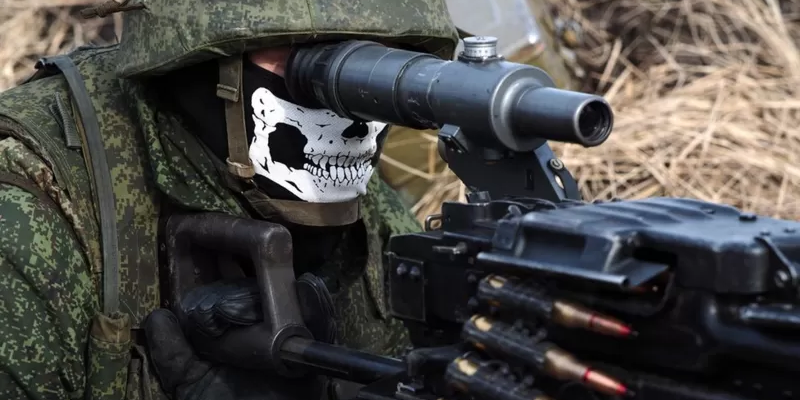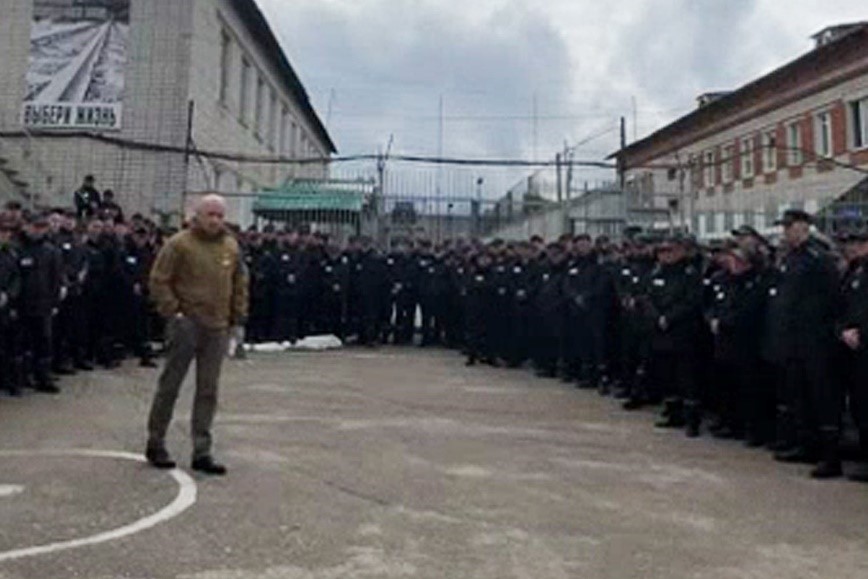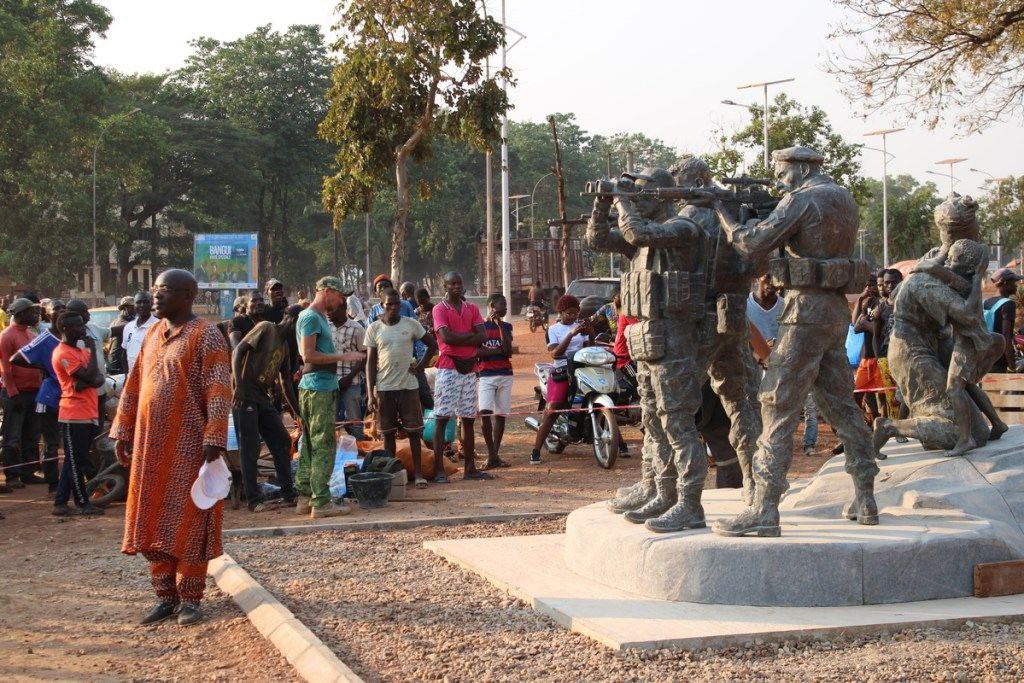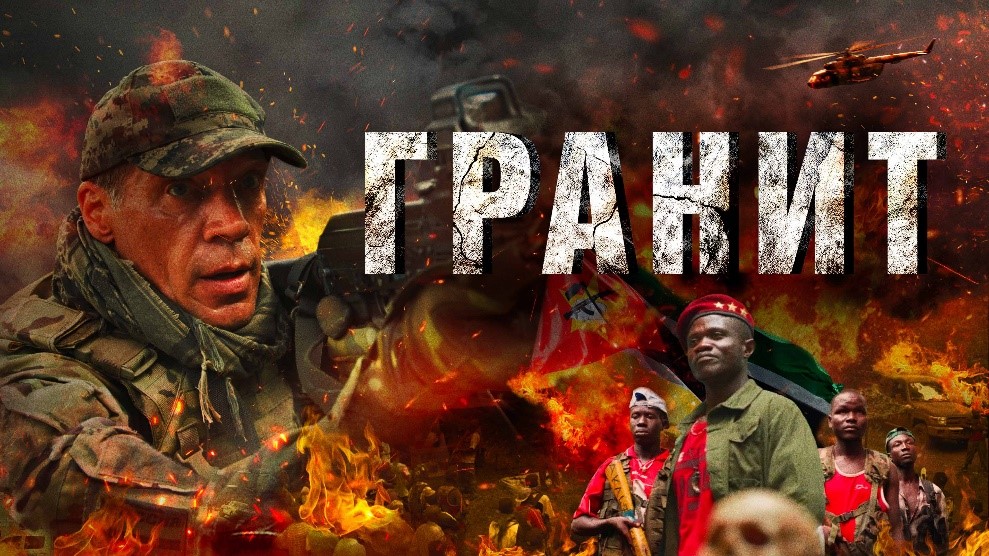A PolskieRadio24 Interview with Dr. Andrew McGregor
November 3, 2022
Any involvement of the Wagner Group has to be approved by the Kremlin and is usually negotiated through the Russian Ministry of Defense; its operations abroad are supervised by the FSB or, more often, the GRU – says Dr. Andrew McGregor, director of Aberfoyle International Security, in an interview with PolskieRadio24.pl.
 Ewa Zarzycka, portal PolskieRadio24.pl: Who is Yevgeny Prigozhin, who admits to creating the Wagner Group?
Ewa Zarzycka, portal PolskieRadio24.pl: Who is Yevgeny Prigozhin, who admits to creating the Wagner Group?
Yevgeny Prigozhin is responsible for financing the Wagner “Group,” which is really a network of contract soldiers, disinformation specialists, election manipulators, VIP security personnel and a variety of companies focused on resource extraction. He has no known military background or expertise, having moved up from sausage-maker to restaurant owner to Kremlin caterer. A personal friendship with Vladimir Putin dating back to their days in St. Petersburg accounts for most of his success.
Does he command this private army, or is he merely its political protector? Does Prigozhin want to make a political fortune from the successes of the Wagnerians in Ukraine?
With no personal military expertise or training, Prigozhin does not oversee Wagner ground operations, this task being given to senior members of the network, usually with experience in the GRU. Prigozhin does not fund the network’s operations (which in most cases are not particularly lucrative), but acts more as a funding middleman and administrator.
 Prigozhin recruits for Wagner Group in a Russian prison colony.
Prigozhin recruits for Wagner Group in a Russian prison colony.
Prigozhin is a creature of Vladimir Putin and his fortunes are closely tied to those of the president. Prigozhin was recently reminded of this point when he began to publicly criticize Russian generals and Defense Minister Sergei Shoigu, another personal friend of the president. Prigozhin’s spokesman was dragged from his car and badly beaten by members of the Russian National Guard, a force personally loyal to Putin and led by the president’s former judo sparring partner.
How large is the group, and how armed. Is it a private company or does it use state financial and material resources (armaments)?
The size of overseas deployments ranges from 100 (security and advisory services) up to 2,000 (combat operations) depending on the duties undertaken. American estimates suggest there are roughly 8,000 Wagner personnel in Ukraine.
Arms and uniforms are typically identical to those used by Russian regular forces. Russian-made armored personnel carriers or infantry fighting vehicles are often deployed on foreign operations, though these are not always the latest models. In some cases, such as Libya, Russian warplanes (absent their national insignia) were deployed with Wagner pilots. The Wagner network often acts as a conduit for Russian arms supplies to client nations.
Was it Prigozhin first with his idea, or was it first the idea (of the Kremlin?) and then Prigozhin? When did the Kremlin stop pretending that it was a private company?
With strict laws in the Russian Federation against mercenary activities, it was Vladimir Putin who first suggested in a 2012 speech that there might be some room for the establishment of private military contractors (PMCs) in Russia. The next year, the Slavonic Corps, a Hong Kong-registered PMC recruited from Russian veterans, was deployed in Syria. The mission was an utter disaster, partly because of lack of support from the Russian military, and the leaders of the Corps were prosecuted in Russian courts.
However, the deployment did suggest to Kremlin insiders that a new private military force with stronger ties to the Russian regular forces and intelligence services might be a means of furthering the financial interests of Kremlin insiders abroad and, to a lesser extent, Russian national interests. The main appeal was the plausible deniability that came with a PMC with no official existence or visible ties to the Russian government.
What is the attitude of the Americans towards the Group? Do they treat them as a legal formation in understanding international law. After all, they also have Blackwater themselves?
Taking legal action against “the Wagner Group” is complicated by the fact that, on paper at least, no such group exists. The US has thus applied sanctions against Prigozhin, his associates and the many registered entities that form the Wagner network. There is an ongoing debate in Washington over whether the “Wagner Group” should be declared a “Foreign Terrorist Organization (FTO).” Those who oppose the designation refer to the amorphous nature of the Wagner network and suggest its personnel can be tried instead under existing international laws against war crimes and crimes against humanity. New legal approaches are being developed that would treat Wagner operatives, not as independent “mercenaries,” but as members of a de facto arm of the Russian government.
Though Blackwater and its successor groups have been employed by the US government, especially to allow the withdrawal of US regular army and National Guard personnel, such groups do not figure in the foreign policy of the US in the way Wagner network operatives are used to further Russian goals. Another difference lies in accountability; when Blackwater operatives committed a massacre in Baghdad in 2007, they were eventually prosecuted and convicted by US courts (though all were eventually pardoned by Donald Trump in 2022). Abuses by Wagner personnel are ignored by Moscow, which continues to disclaim any responsibility for their actions. American diplomatic intervention in recent days appears to have persuaded the military junta ruling Burkina Faso to abandon plans for a widely-expected Wagner deployment.
Is the Kremlin the only “employer” of the Group?
The Kremlin routinely denies any connection to the Wagner network. All deployments of Wagner personnel must, however, meet with Kremlin approval and are typically negotiated through the Russian Ministry of Defense. Wagner operations abroad are overseen by personnel of the FSB (successor of the KGB) and, more often, the GRU.
What is the Group’s relationship with the Kremlin? Putin denies such links, but could the Group develop without the Kremlin’s approval?
As mentioned, all Wagner deployments must meet with Kremlin approval. Any attempt to operate outside Kremlin oversight would quickly result in prosecution under Russia’s strict prohibitions against mercenary activity. In this sense, Wagner operatives are not “mercenaries” in the usual understanding of the term.
Where the Group has operated and continues to operate, officially or unofficially. The main field of activity is Africa and the Middle East (Syria?). There are rumours that in Africa, the Group earns money for the Kremlin. It is also said the Group makes money (for Kremlin) in some unspecified way (exploiting natural resources, e.g. gold). This sounds very mysterious to me. Could you add something on this subject? Can this money change the fate of the war in Ukraine? What part of the Group is fighting in Ukraine and what part is making money abroad? They are badly needed in Ukraine?
Nations or disputed regions in which Wagner personnel or other Russian contractors have had a verifiable presence include Syria, Libya, Nagorno-Karabakh, Venezuela, Sudan, Mali, Mozambique, Madagascar, the Central African Republic and Ukraine. These deployments are typically paid for by contracts giving Wagner-related companies access to natural resources, especially in the mining sector. Profits are directed to Kremlin insiders rather than the state budget. Financing the Russian war in Ukraine relies mostly on proceeds from Russia’s domestic oil and gas industries rather than Wagner-associated operations.
 Statue Honoring the Wagner Group in Bangui, Central African Republic (VOA)
Statue Honoring the Wagner Group in Bangui, Central African Republic (VOA)
A Russian manpower shortage in the current Ukraine campaign has led to many Wagner operatives working abroad being recalled for service in Ukraine. This has reduced their activities in places such as Libya while reasserting the idea that Wagner personnel are under the control of the Kremlin.
Regarding the nationality of the recruits, is it an international formation, similar to the Foreign Legion, or does it recruit only Russians?
The Wagner network recruits in a variety of East European countries, including Moldova, Belarus, Ukraine and Serbia. In the MENA nations, Wagner recruits both Syrians and Libyans; there are unverified reports some of these have been deployed in Ukraine.
Central Asian nations provided Wagner recruits until recently, when most of these nations banned Wagner recruitment. Wagner does not accept recruits from NATO or EU countries. Wagner has little in common with the French Foreign Legion, which is now a fully integrated part of the French regular army and highly selective in its recruiting. Unlike Wagner, the Foreign Legion no longer accepts recruits with a serious criminal record. Wagner is more like the old private armies of the British East India Company, the French East India Company and the Dutch East Indies Company, all of which contributed to the overseas interests of their home nations (particularly through the exploitation of resources and labor) without coming under the formal command of their respective national militaries.
Spain, France, Ukraine, Israel, Great Britain, the United States, Saudi Arabia and many African states continue to recruit foreign nationals for their militaries. Some offer citizenship after completing a set number of years in military service.
 Wagner-produced movie “Granite” about Russian contractors in Mozambique.
Wagner-produced movie “Granite” about Russian contractors in Mozambique.
There is much talk about recruiting criminals into the Group for whom army service can shorten their sentences and earn money. By the way, how much money can a criminal volunteer expect per month , and how long the training would last. Does any insurance company cover them? The risks are very high.
To address Russian manpower shortage in Ukraine, Evgeny Prighozin began recruiting in Russian prison colonies, offering six-month contracts with the promise of commutation of their sentences if the convicts survived. Despite offering a blunt assessment that 80% of prison recruits would not survive the enlistment period, the prospect of serving long sentences in Russia’s miserable and overcrowded prisons has helped enable recruitment.
As little as a week of training is provided to prisoners before deployment to the front lines. This is understandable given that prison recruits function much in the same way as Soviet penal battalions in WWII; they are used in frontal attacks designed, not to take objectives, but to force Ukrainian forces to fire, thus revealing their concealed positions to Russian forward artillery observers (Russian military doctrine relies heavily on the use of massed artillery). Prisoners may be offered less than the usual Wagner rate of $4000 per month, but since full payments are usually made to Wagner operatives only at the end of their contract, many will never collect. They are not covered by insurance and offers to provide compensation to families of dead prisoner-recruits are rarely committed to paper and thus worthless.
Some six-month enlistments and their subsequent commutations of sentence are reported to be for sale to rich inmates in Russian prison colonies. Purchasers are advised to lie low outside of Moscow or St. Petersburg until six months have passed, at which time they can emerge safely with no criminal record.
How do the Russians treat the Group’s activity? Do they regard them as patriots, experts in dirty work or common criminals?
It is difficult to gauge Russian popular opinion in the absence of a free media. Abandoning a policy of keeping a low profile within Russia, Wagner has recently been hailed by Kremlin-controlled media as an important element on the frontlines in Ukraine. Prior to the invasion of Ukraine, little was ever said in Russian media regarding Wagner activities. Russian perceptions of Wagner thus tend to be based on Kremlin propaganda efforts and Wagner’s own public relations department, which produces films, statues, t-shirts, Facebook pages and billboards praising the work of Wagner personnel.
The Wagner Group is not the only private army in the world. How many are there? Moreover, how are they used by other governments?
It is very difficult to say how many “private armies” there are in the world. Part of the problem is a matter of definitions – is every private armed security company a “private army”? Private Military Contractors (PMCs) tend to come and go in the marketplace. Some, like Blackwater, change their names on a regular basis. Some can be very dangerous; others, like the Atholl Highlanders, the last private army in Europe before the emergence of the Wagners, are purely ceremonial.
Employment of “private armies” by national governments can be undertaken for the following reasons:
1/ National militaries lack the arms or skills to prevail in a security crisis;
2/ National forces may be regarded as uncommitted or even a threat to regime survival;
3/ National forces may be insufficient in numbers to address an ongoing security threat;
4/ A regime may wish to take severe measures against its internal enemies through the short-term use of unaccountable troops.
Rather than operate as a “private army,” Wagner operatives have experienced close integration with Russian regular forces in recent months despite occasionally violent rivalries between the two forces.
Wagner is not an elite unit, and was never designed or intended for use on European battlefields in a conventional war. The use of poorly-disciplined veterans (many with troubled service records or criminal convictions) and volunteers seeking an early release from Russia’s prison colonies can in no way tip the scales of the Ukraine conflict in Russia’s favor. Instead, their use side-by-side with Russian regulars has merely served to dispel the pretence that Wagner operatives have no connection to the Russian state, severely diminishing their usefulness abroad. Wagner’s brutal methods, its failure to subdue jihadist or rebel movements and its devotion to profit over security will ultimately backfire in most of its foreign deployments. As a means of establishing a broad Russian geo-political presence in resource-rich and strategically important nations, the Wagner approach and its rapid spread has alarmed the West. However, so long as Wagner personnel remain unaccountable to any authority, even despite now clearly-established ties to the Kremlin, short-term success can only be followed by long-term failure.
************************
Aberfoyle International Security is a Toronto-based independent consulting firm specializing in international security analysis. According to the US press in 2011, among the materials found in Bin Laden’s Pakistani hideout there were more than 50 articles written by its current director, Andrew McGregor.
